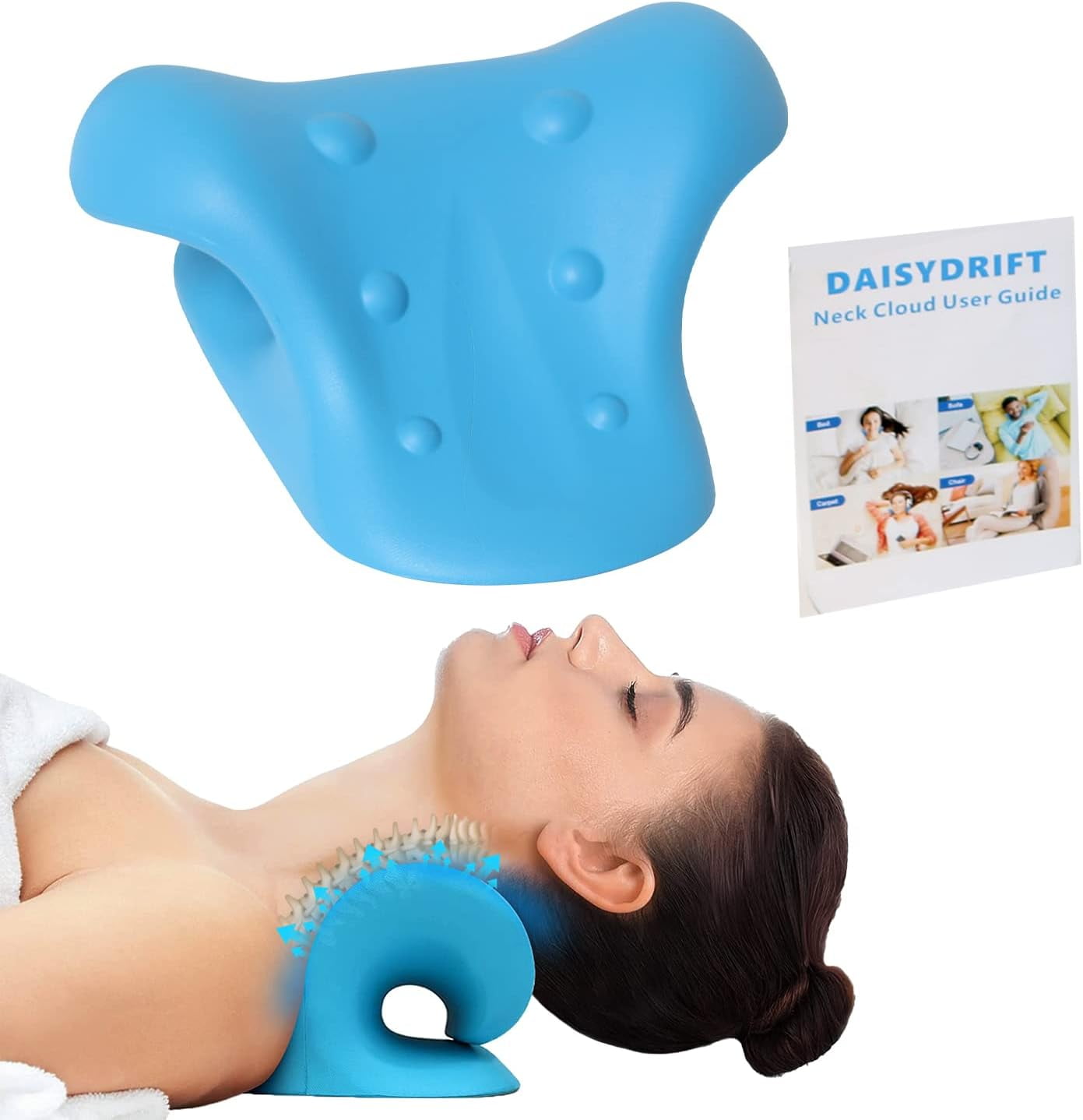Just How the Neck Cloud Can Aid With Persistent Neck Discomfort and Rigidity
Just How the Neck Cloud Can Aid With Persistent Neck Discomfort and Rigidity
Blog Article
The Impact of Stress on Neck Pain: Methods for Reducing Stress and Discomfort
In today's hectic globe, it's no key that stress and anxiety has become a prevalent element in the beginning and worsening of neck discomfort. Join us on a trip to unwind the influence of stress and anxiety on neck discomfort and uncover reliable means to alleviate discomfort and enhance overall quality of life.
Understanding Stress-Related Neck Pain
Stress-related neck pain can manifest as tension, rigidity, or pain in the neck and shoulder location. The connection between anxiety and neck discomfort exists in the body's physiological response to stress and anxiety, which can result in muscular tissue stress and tightness in the neck muscles.

Identifying Common Stress Areas
One usual stress location is the neck, where anxiety often manifests physically. Tension headaches, stiff neck muscles, and limited array of activity are typical signs of stress-related neck tension. Being aware of these common stress locations can assist individuals recognize the physical indications of tension and take steps to address them prior to they rise into persistent pain or discomfort.
Implementing Leisure Strategies
Relaxation strategies are valuable tools for minimizing neck discomfort caused by anxiety. In addition, activities like yoga exercise and tai chi integrate both physical motion and leisure, making them effective practices for lowering tension and neck pain. By including these leisure methods right into your everyday routine, you can help take care of anxiety levels, reduce tension in the neck, and relieve discomfort associated with stress-induced neck discomfort.
Integrating Self-Care Practices
Incorporating self-care techniques is necessary for preserving overall well-being and managing stress-related neck pain efficiently. Participating in routine physical activity, such as mild stretching workouts or yoga exercise, can help minimize stress in the neck and shoulders. Practicing good posture throughout the day and taking frequent breaks from prolonged sitting or screen time can also prevent strain on the neck muscular tissues.
Furthermore, focusing on ample rest and developing a regular rest routine can contribute considerably to decreasing tension levels and promoting leisure. Producing a calming bedtime regimen, such as reviewing a book or taking a warm bath, can aid prepare the mind and body for peaceful sleep. Additionally, maintaining a well balanced diet regimen rich in nutrients and staying moistened can sustain general health and wellness and decrease inflammation that may aggravate neck her response discomfort.
Including mindfulness methods, such as deep breathing exercises or reflection, can aid take care of stress and anxiety and advertise relaxation. Taking time for oneself, engaging in leisure activities, and setting boundaries to shield personal time are also vital facets of self-care that can add to lowering stress and anxiety and relieving neck discomfort.
Looking For Professional Help
How can people successfully attend to consistent neck pain that is influencing their every day life and wellness? Looking for specialist help can be a vital action in handling and alleviating neck pain. Consulting with medical care professionals such as chiropractors, physiotherapists, or orthopedic specialists can click reference give useful understandings and tailored therapy strategies. These experts can carry out complete analyses to diagnose the underlying reasons for neck pain and advise ideal interventions.
Chiropractic specialists concentrate on back manipulation methods to enhance positioning and lower stress in the neck location. Physiotherapists use targeted stretches and exercises to strengthen muscular tissues, improve flexibility, and enhance general neck feature. Orthopedic specialists can offer sophisticated medical interventions such as injections or surgical alternatives for severe cases of neck discomfort.
Final Thought

Stress-related neck discomfort can show up as tension, rigidity, or pain in the neck and shoulder location. The Related Site link between stress and anxiety and neck pain exists in the body's physiological response to tension, which can result in muscle mass tension and tightness in the neck muscles. Stress migraines, tight neck muscles, and limited variety of movement are common symptoms of stress-related neck stress. By including these relaxation techniques right into your day-to-day regimen, you can assist handle stress and anxiety levels, reduce stress in the neck, and relieve pain connected with stress-induced neck pain.

Report this page